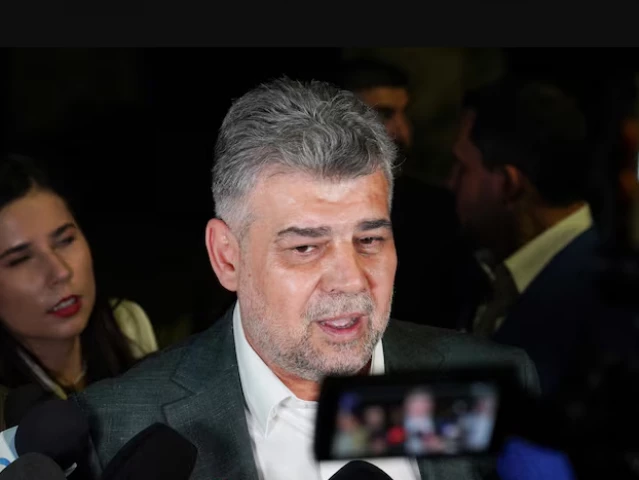Romanian PM resigns after far-right victory in first round of presidential vote
Eurosceptic George Simion leads with 41%, to face centrist Nicusor Dan in May 18 run-off; Antonescu comes third

Romanian Prime Minister Marcel Ciolacu resigned on Monday, a day after a far-right opposition leader won the first round of the presidential election re-run and his own candidate crashed out of the race.
Ciolacu said his centre-left Socialists would withdraw from the pro-Western coalition - effectively ending it - while cabinet ministers will stay on in an interim capacity until a new majority emerges after the presidential run-off.
Hard-right eurosceptic George Simion decisively swept the ballot on Sunday, with some 41% of votes, and will face Bucharest mayor Nicusor Dan, an independent centrist, in a May 18 run-off. Coalition candidate Crin Antonescu came third.
Although Ciolacu's leftist Social Democrats (PSD) won the most seats in a Dec. 1 parliamentary election, Simion's AUR and two other far-right groupings, one with overt pro-Russian sympathies, won more than a third of the seats to become a clear political force.
The Social Democrats had formed a coalition government with the centrist Liberals and ethnic Hungarian UDMR to help keep the European Union and NATO state on a pro-Western course. A governing majority that cordons off the far right in the legislature cannot be formed without it.
"This coalition is no longer legitimate," Ciolacu told reporters after a party meeting. "The next president was going to replace me anyway, that's what I've read."
Romania already has an interim president until the May 18 run-off. The country has the EU's largest budget deficit and risks a ratings downgrade to below investment level unless it enforces a decisive fiscal correction.
A Simion victory could isolate Romania, erode private investment and destabilise NATO's eastern flank, where Bucharest plays a key role in providing logistical support to Ukraine as it fights a three-year-old Russian invasion, political observers say.
It would also expand a cohort of eurosceptic leaders in the European Union that already includes the Hungarian and Slovak prime ministers at a time when Europe is struggling to formulate its response to US President Donald Trump.



















COMMENTS
Comments are moderated and generally will be posted if they are on-topic and not abusive.
For more information, please see our Comments FAQ